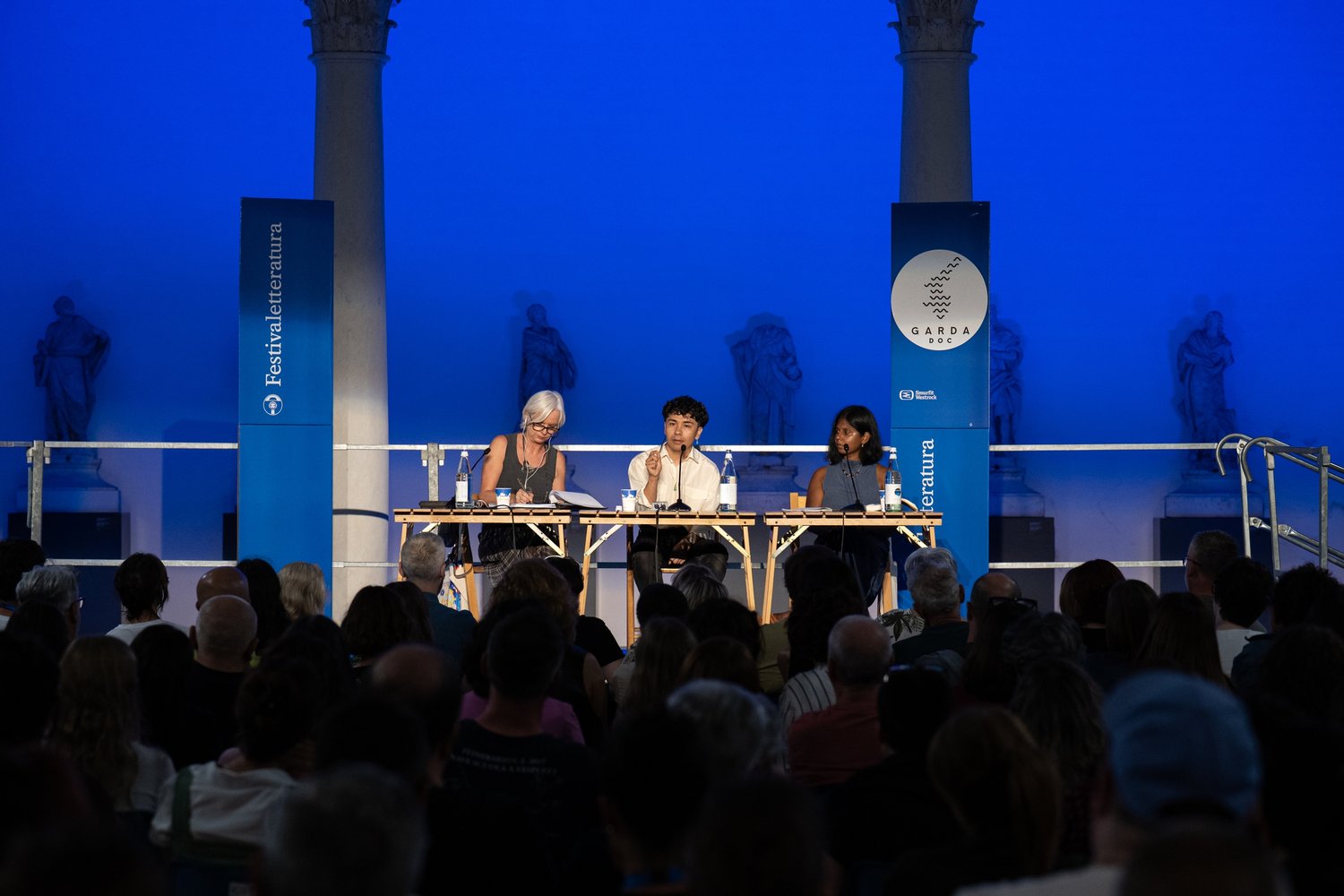



Memory, Violence, and the American Dream
The internationally acclaimed Vietnamese-American poet and novelist Ocean Vuong is at Festivaletteratura to present his much-anticipated novel The Emperor of Gladness, in which he addresses the American Dream from the perspective of the son of a generation of Vietnamese migrants.
Set against the marble of San Sebastiano, the interview starts with a discussion of why only America claims a “dream”. Why, Vuong asks, is there no Italian dream? Americans, he observes, are obsessed with illusions. In a country resting on foundations like genocide and slavery, myths are created to function as amnesia.
The discussion naturally shifts to capitalism. Vuong speaks of his own adolescence, working in a fast-food restaurant at the age of sixteen while living with his family in a government-subsidised apartment. His mother encouraged him to work at McDonald’s because having a low income ensured they could keep their flat. Fast food labor thus became a survival strategy. Yet Vuong also highlights the solidarity found among coworkers, people who, like his characters in The Emperor of Gladness, held onto dreams they knew might never materialize.
What role for writing, then? Vuong does not write about trauma but about violence, asking himself where violence comes from, and how remembering can resist erasure. He shares an emotional anecdote about the struggle of structuring his first novel. He was told to write a “digestible” book, that could be easily consumed; like fast food. Later, during a visit to the Palazzo Reale in Milan, he was shown a dark, private wing where the walls still bore deep cracks left by American bombing. The Italians had preserved the scars rather than covering them, unlike the American tendency to restore and forget. Inspired by that vision, Vuong crafted a “broken novel,” one whose very fractures served as an act of remembrance.
Vuong’s presence at Festivaletteratura reaffirms his reputation as one of the most vital voices in contemporary literature. Everyone in attendance is deeply engaged with Vuong's presence and his lyrical manner of expression. Each time he speaks, the audience responds with spontaneous applause, visibly moved by the depth of his reflections. His ability to create a magnetic, almost magical atmosphere makes the conversation feel less like an interview and more like a shared act of storytelling. Like in The Emperor of Gladness, Vuong transforms personal memory and collective history into a narrative that resists forgetting, confronting myths with truths, and silence with testimony.